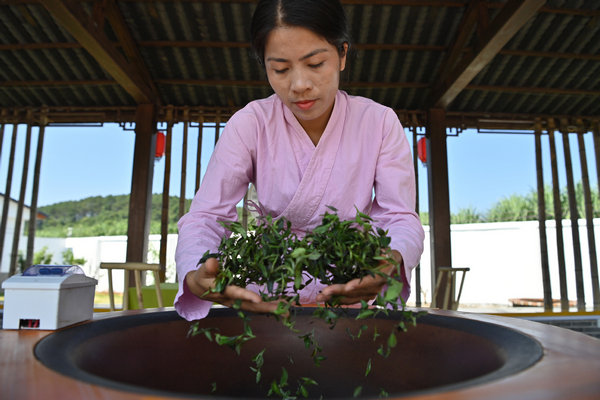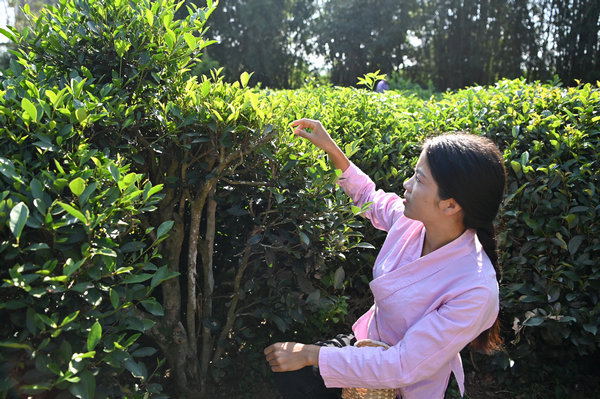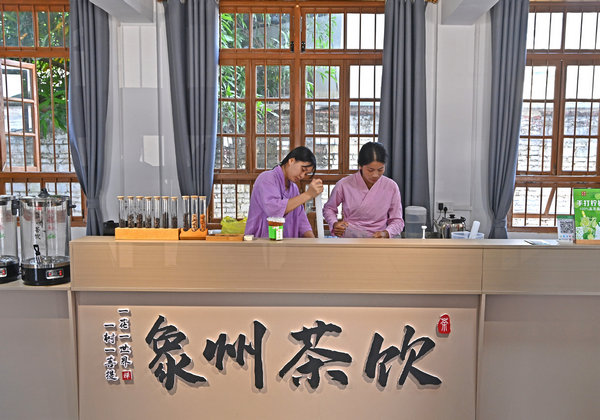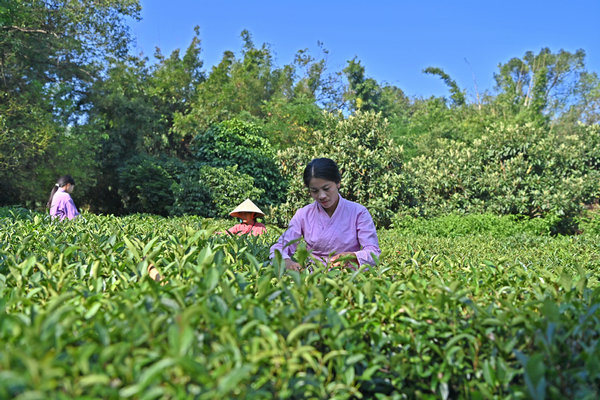
Feng Kangchong pan-fries tea leaves in Sigao village, Miaohuang township of Xiangzhou county, Laibin city of South China's Guangxi Zhuang autonomous region, Oct 10, 2024. [Photo/Xinhua]Feng Kangchong, born in 1989, is a representative inheritor of the Gupa tea-making skills. Hailing from Gupa Village of Xiangzhou County in south China's Guangxi, Feng has been involved with tea-making from an early age.
Tea cultivation is a tradition of Xiangzhou that has lasted over 1, 300 years, while Gupa tea, named after its place of origin, Gupa Village, has a history spanning more than 400 years.

Feng Kangchong picks tea leaves at a tea garden in Sigao village, Miaohuang township of Xiangzhou county, Laibin city of South China's Guangxi Zhuang autonomous region, Oct 10, 2024. [Photo/Xinhua]In recent years, the local government has worked to develop the tea industry by attracting investment, signing purchase agreements with farmers, building standardized tea gardens, and establishing a complete industry chain. Today, Gupa tea is deemed a significant source of income for local villagers.
"Gupa tea is a treasure passed down by our ancestors, and we must do everything we can to build a brand around it and contribute to rural revitalization, "said Feng.

Feng Kangchong(R)prepares tea drinks in Sigao village, Miaohuang township of Xiangzhou county, Laibin city of South China's Guangxi Zhuang autonomous region, Oct 10, 2024. [Photo/Xinhua]

Feng Kangchong picks tea leaves at a tea garden in Sigao village, Miaohuang township of Xiangzhou county, Laibin city of South China's Guangxi Zhuang autonomous region, Oct 10, 2024. [Photo/Xinhua]



